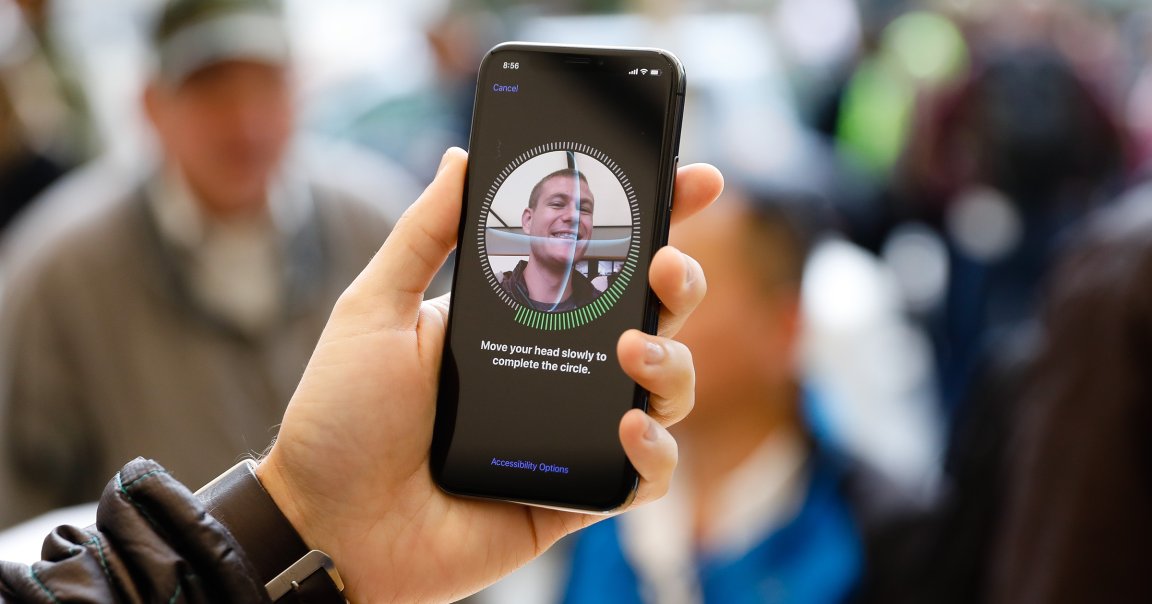
CAN’T LOOK AWAY
The advent of FaceID, a feature that lets iPhone owners log into their devices using facial recognition, means it’s never been easier to unlock a smartphone — all you’ve gotta do is look at the camera. But the technology also makes it easier for police to access data stored on suspects’ phones, raising thorny new legal questions.
Take the case of Ohio resident Grant Michalski. Forbes reports that the FBI raided Michalski’s home in August, on suspicion that he’d sent and received child pornography. Then investigators forced Michalski to unlock his personal iPhone X using FaceID, allowing them to access his chats and photos. It’s the first documented case of its kind.
BIOMETRIC INSECURITY
The battle over whether law enforcement should be able to access suspects’ phones is hotly contested.
In 2016, the FBI tried to get into the iPhone of one of the shooters who perpetrated the 2015 terrorist attack in San Bernardino, California. The attackers were killed in a shootout with police, but officials wanted information off the one suspect’s phone to find out if the couple had accomplices or had been planning further attacks. The phone was protected by a pass code that only allowed a limited number of login attempts. The FBI asked Apple for help, but the tech giant didn’t comply with requests.
Also in 2016, the FBI tried to access the iPhone of an alleged gang member in California. This time, prosecutors wanted the suspect to provide a fingerprint to unlock the iPhone using TouchID, which a Los Angeles judge granted. But the next year, a federal judge in Chicago rejected a request to force suspects to provide their fingerprints to unlock a personal device.
FACING JUSTICE
We use phones to store some of the most intimate details of our lives. It might seem like a good, legal plan to allow the FBI to force a child porn suspect like Michalski to give up his data. But what if that decision weakens rights for the rest of us?
One thing is for sure: this case is bound to rekindle that discussion.
MORE ON THE FACEID UNLOCKING CASE: Feds Force Suspect To Unlock An Apple iPhone X With Their Face [Forbes]
Read More: When Can Law Enforcement Look at Your Devices? A Definitive List